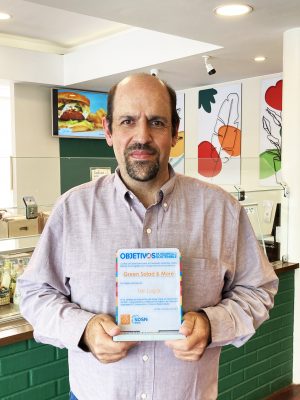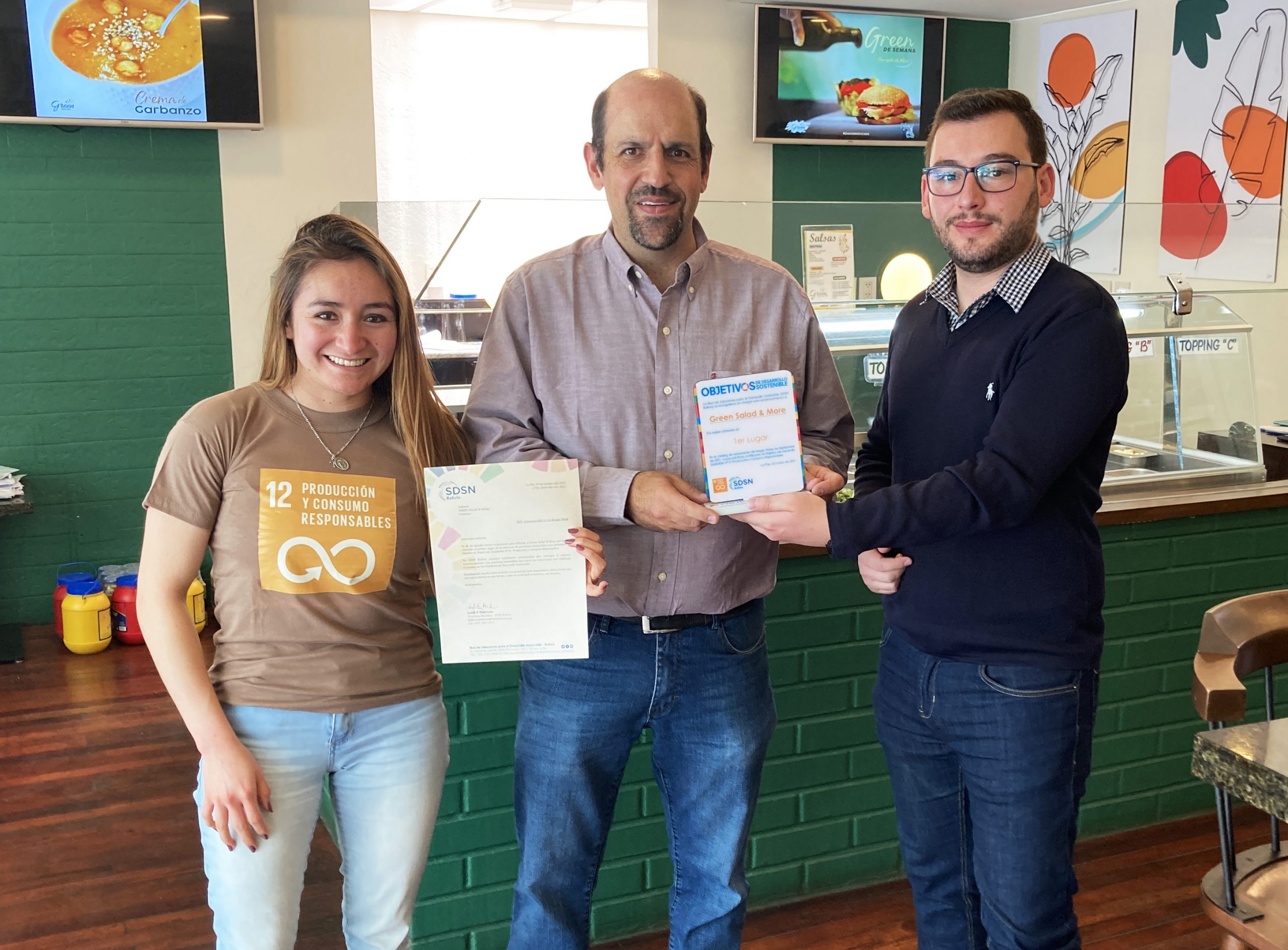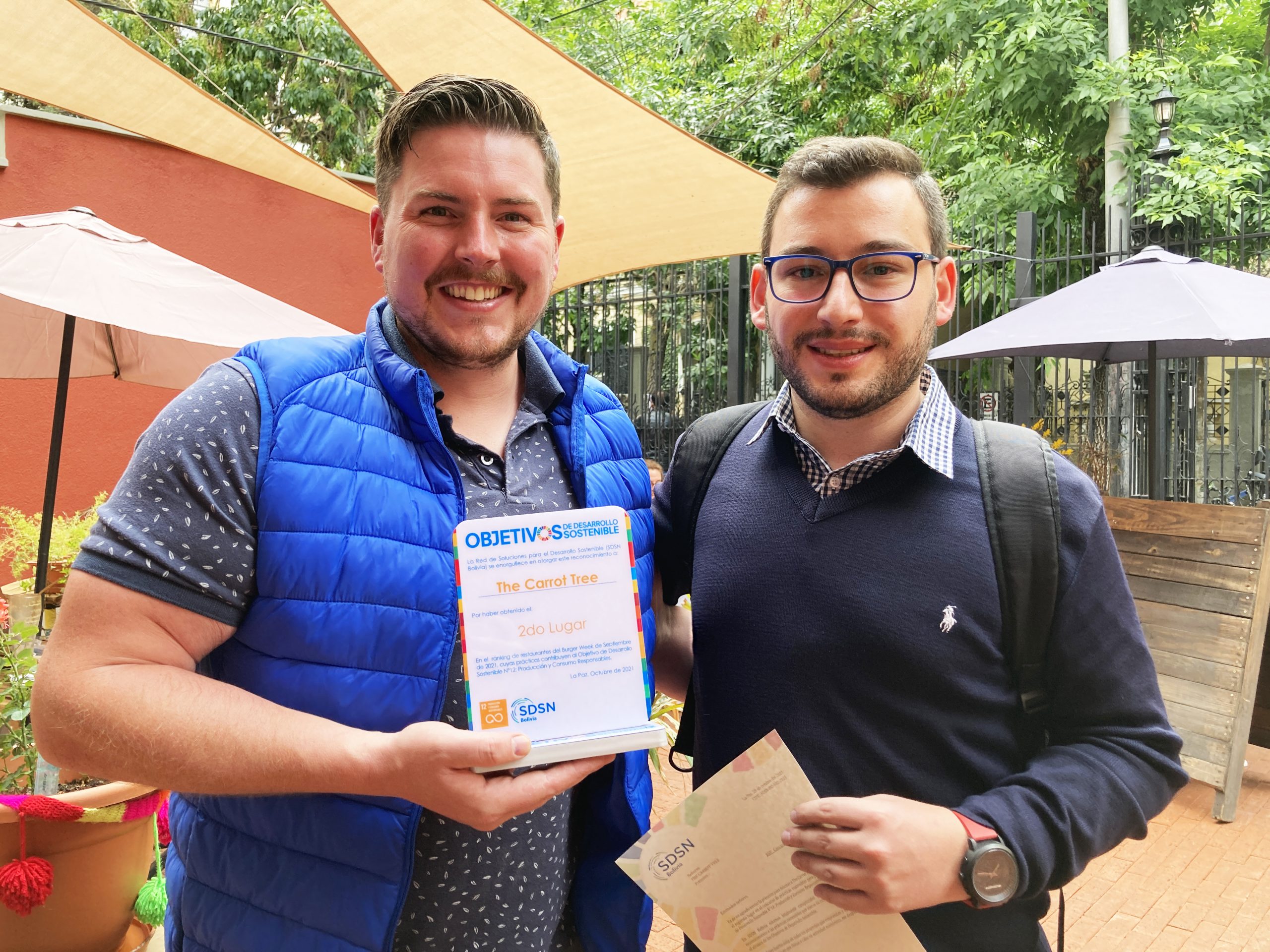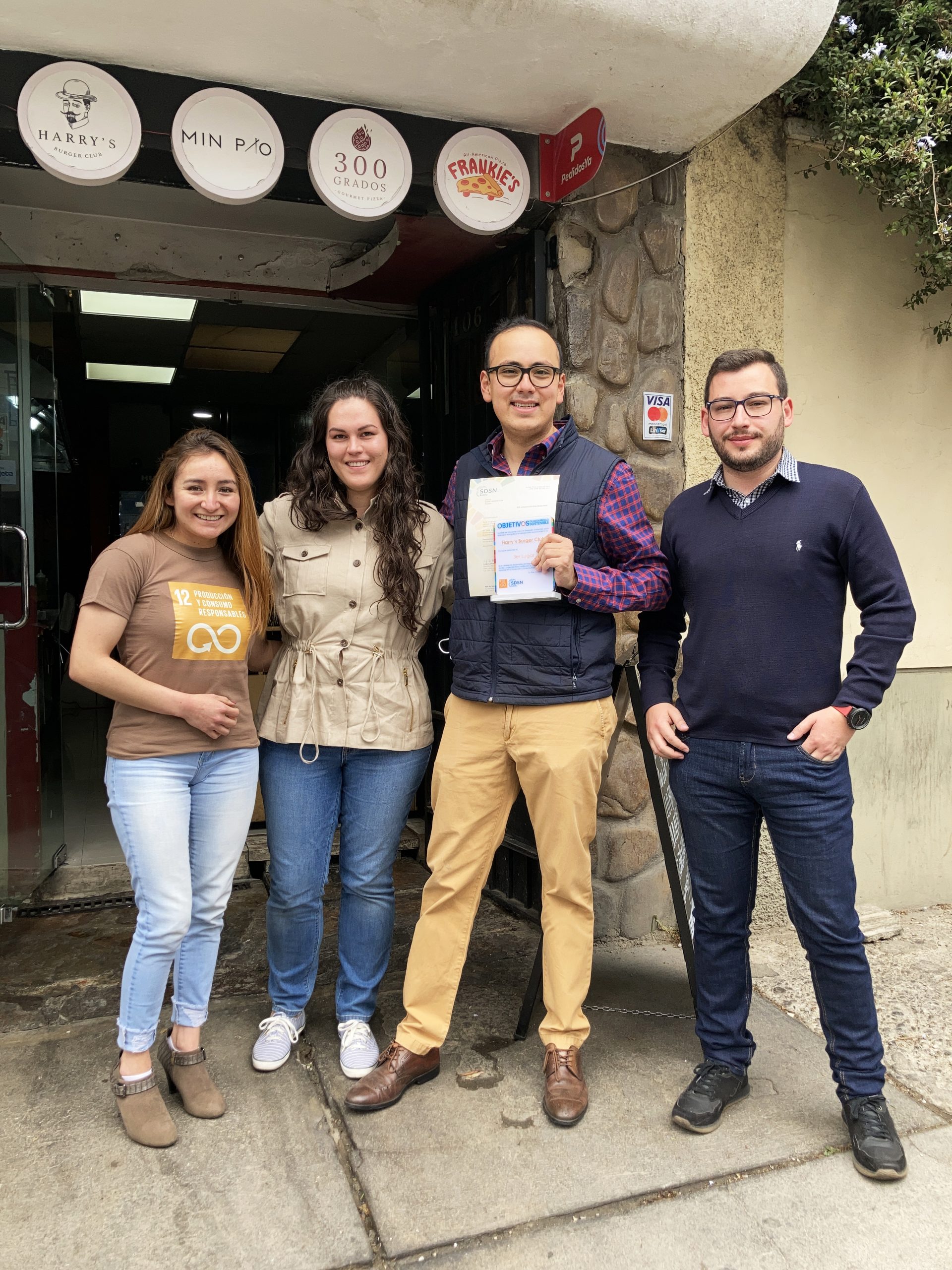
By: SDSN Bolivia
Green Salad & More, The Carrot Tree and Harry’s Burger Club would be the businesses whose sustainable practices most support the fulfillment of Sustainable Development Goal No. 12: Responsible Consumption and Production.

The Sustainable Development Solutions Network (SDSN Bolivia) is promoted by the United Nations and promotes the Sustainable Development Goals (SDG). On this occasion, the network specifically promoted SDG No. 12 through the subsidy of biodegradable packaging for restaurants participating in Burger Week, a local gastronomic event, promoting the reduction of single-use plastic waste by restaurants and consumers.
As a complementary action to this effort, SDSN Bolivia developed an evaluation system that allowed an analysis to recognize and reward the three restaurants whose practices are the most responsible, guaranteeing sustainable consumption and production methods. The information used for the analysis was first-hand. The data was collected through visits to the restaurants that allowed it. In-depth interviews with managers, chefs, and owners were also conducted.
During the research process, the evaluation criteria for the analysis were strictly related to SDG No. 12 and the goals defined for it in the United Nations’ 2030 Agenda. In the varied list of indicators, the main highlights included consumption of national and local products, the reduction of waste of served food, as well as during the production and supply chains, the efficient use of natural resources, the ecological and rational management of chemical products and their release to the atmosphere, water and soil. Waste prevention, reduction, recycling and reuse activities, among other sustainable practices, were also evaluated.
Based on a comparative scale and its extensive knowledge of the SDG information in Bolivia, SDSN Bolivia defined the three winners of the contest: Green Salad & More, The Carrot Tree and Harry’s Burger Club.
Green Salad & More

“The first place was occupied by Green Salad & More, since its main vision is to sell ‘health’, promoting a healthy lifestyle and showing a high responsibility from producer to consumer” mentioned Stefano Canelas, Institutional Communications Coordinator at SDSN Bolivia. Additionally, he mentioned that the restaurant’s oil waste generation is almost nil, avoiding a high environmental impact. Likewise, the restaurant promotes local products such as quinoa, and even Amazonian fruits such as açaí, copoazú, majo and red arazá. The business also has a biodegradable packaging policy, avoiding the use of plastics as much as possible, and using only ceramic and glass tableware inside the restaurant.
The restaurant works with the Autonomous Municipal Government of La Paz to separate its waste (glass, plastic, cardboard and organic waste) and is part of “Ágape”, a space that offers consumers ovo-lacto-vegetarian options, in addition to supporting products premises and animal care. Green Salad & More also uses its space to promote the circular economy, as a collection point for eggs and soda caps (to strengthen campaigns to help children suffering from Cancer).
The Carrot Tree

One of the sustainable practices that earned The Carrot Tree second place was its policy of using Bolivian products that are as natural and organic as possible, fostering the local employment of local producers, such as the coffee from Caranavi. The business promotes local products like tarwi and offers innovative options like vegan bacon. The place has even promoted recipes based on specifically local products on television and also promotes their consumption in their menu. In addition, the restaurant works almost directly with food producers, reducing supply chains and environmental impacts. The Carrot Tree uses biodegradable packaging instead of plastic bags and bulbs. Finally, in this place the circular economy is promoted through the use of recycled furniture and ornaments, giving them a second life. The business also carries out a selection process for glass, plastic, cardboard and organic waste.
Harry’s Burger Club

The main reason why Harry’s Burger Club ranks third was the efficient use of its infrastructure with 6 other restaurants, under the name Cloud Kitchen. The system has managed to make the use of resources such as water, electricity and gas more efficiently, also reducing carbon emissions by having a single supply chain. The venture also avoids the use of plastic bags and packaging. Similarly, it separates and delivers organic waste to a garden for compost, in addition to delivering its oil weekly to an NGO that uses it as a raw material for making soaps and other personal care products.
Its policies also include the use of rechargeable batteries and the promotion of local products such as potato bread, the La Paz hamburger dish and others. The business offers vegetarian options and different gastronomic specialties.
SDSN Bolivia works constantly to promote the SDGs, having published the “Municipal Atlas of the Sustainable Development Goals in Bolivia 2020”, a book that shows the status of the Sustainable Development Goals for each of the 339 municipalities in Bolivia. All the information collected and generated is open to the public and available to researchers, public managers, businessmen and civil society, to facilitate evidence-based decision-making. The document is available at: www.sdsnbolivia.org/Atlas

 Español
Español